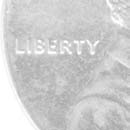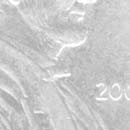I.O.U.S.A. (36 page)
Authors: Addison Wiggin,Kate Incontrera,Dorianne Perrucci
Tags: #Forecasting, #Finance, #Public Finance, #Economic forecasting - United States, #General, #United States, #Personal Finance, #Economic Conditions, #Economic forecasting, #Finance - United States - History, #Debt, #Debt - United States - History, #Business & Economics, #History









Robert Rubin
Robert Rubin, the 70th secretary of the U.S. Treasury (1995 – 1999), was one of the key players in the Clinton administration ’ s balanced budget. In 1999, he, along with Alan Greenspan and Larry Summers, was dubbed by
Time
magazine as “ The Committee to Save the World ”
after their work with the IMF and others to combat the fi nancial crises in Russia, Asia, and Latin America. He is currently a director and chairman of the Executive Committee at Citigroup.
Q:
Can you tell me about Little Rock, Arkansas, in January 1993?
Robert Rubin :
What happened is that the president - elect got us all
[everyone involved in economic policy] together in the Governor ’ s Mansion and we had prepared a presentation with respect to what we at least thought an economic policy ought to look like going forward. And we started that discussion with President - elect Clinton, and very shortly into the discussion, President Clinton said, “ Look, I understand. Our threshold issue has to be to restore physical discipline if we ’ re going to have sustained recovery. And then on top of that, we can build everything else that we want to do. ” And that really was the beginning of the formulation of his economic policy, and all that we did for the next eight years.
Q:
Was there a sense at that time that a recovery for the United
States was necessary?
Robert Rubin :
Well, the country, as you may remember, in the very end of 1989, started to have a decline in economic conditions, in what ’ s called gross domestic product. And by the time you got into 1990, unemployment was increasing, and at some point we had a recession. The presidential campaign of 1992 was run in fair measure on economic issues because the country had had by that time, roughly speaking, three years 127
c09.indd 127
8/26/08 6:59:24 PM
128 The
Interviews
of relatively diffi cult economic conditions with relatively high levels of unemployment. By the time you got to the end of 1992, unemployment was over 7 percent, and President Clinton had been elected on a platform of putting in place economic policy to create sustained recovery, increase jobs, and increase standards of living. And that was a very important part of what he focused on in the early part of his administration.
Q:
Were some other people arguing for a middle - class tax cut?
Robert Rubin :
Well, President Clinton never wanted to have a middle - class tax cut, and I think he was right in many ways. But the problem was that by the time you got to the point where we were actually formulating a policy for the new administration, the defi cit projections that had come out of the prior administration were so substantial that we had to make a different set of choices or trade - offs than we thought we were going to have to face during the campaign. And in the context of that substantially worsened prospective fi scal picture, the conditions didn ’ t allow for a middle -
class tax cut and the other purposes that the president wanted to accomplish. So what President Clinton decided to do was to put in place a program that would begin the process of defi cit reduction, which turned out to be very successful, and at the same time, to make room for public investment in areas that he thought were critical economically or socially. For example, a very large increase in the earned income tax credit, a program that most people know nothing about in our country, but which is really an outstandingly successful program to help low - income working people have increased incomes.
Q:
Speaking of defi cits, do you think defi cits matter?
Robert Rubin :
Well, I don ’ t think there ’ s any question that defi cits matter, and I think there is probably virtually no mainstream economist who doesn ’ t believe that defi cits matter. Defi cits over time — and we ’ re talking about defi cits over a period of time, not just for a little while — lead to higher interest rates, they can create the risks of market disruption, and they undermine the ability of government to engage in public investment, which is so critical economically and socially. They reduce our leverage abroad when c09.indd 128
8/26/08 6:59:30 PM
Robert
Rubin
129
we try to negotiate on international economic policy issues that are important to our country.
What we found in the early 1990s, when President Clinton put in place a powerful defi cit reduction program, is that defi cits also undermine business and consumer confi dence more generally. So I don ’ t think there ’ s any question that defi cits matter. And I think it ’ s a broadly accepted view that sustained defi cits over time can have signifi cant adverse impact on jobs, on standards of living in our economy more generally.
Q:
Can you explain to me what would life look like in America
and our economy if the dollar declined, if people didn ’ t have
the confi dence that they have now or once had?
Robert Rubin :
Well, all during the Clinton years, one of the points that we made in the public discussion of economic issues was that a strong dollar is very much in our country ’ s interest. Now, that concept was the concept of a strong dollar based on strong policy.
Remember, the dollar exchange rate, the exchange rate between the dollar and foreign currencies, represents the rate at which we take the goods and services that we produce and exchange them for the goods and services that others produce and that we import. So the stronger the dollar, the more goods and services we get from foreign countries in exchange for the goods and services we give them, and that obviously improves our standard of living. Conversely, the lower the dollar, the less we ’ ll get in return for the goods and services we produce, and therefore the lower our standard of living.
So having a strong dollar based on strong policy is very much in the economic interest of our country.
Q:
Can you imagine for a moment that it ’ s 1999 and you are
about to leave the White House and leave the Treasury? Would
you be surprised if someone told you on that day that we
would have the debt levels and the defi cit spending that we
have these days?
